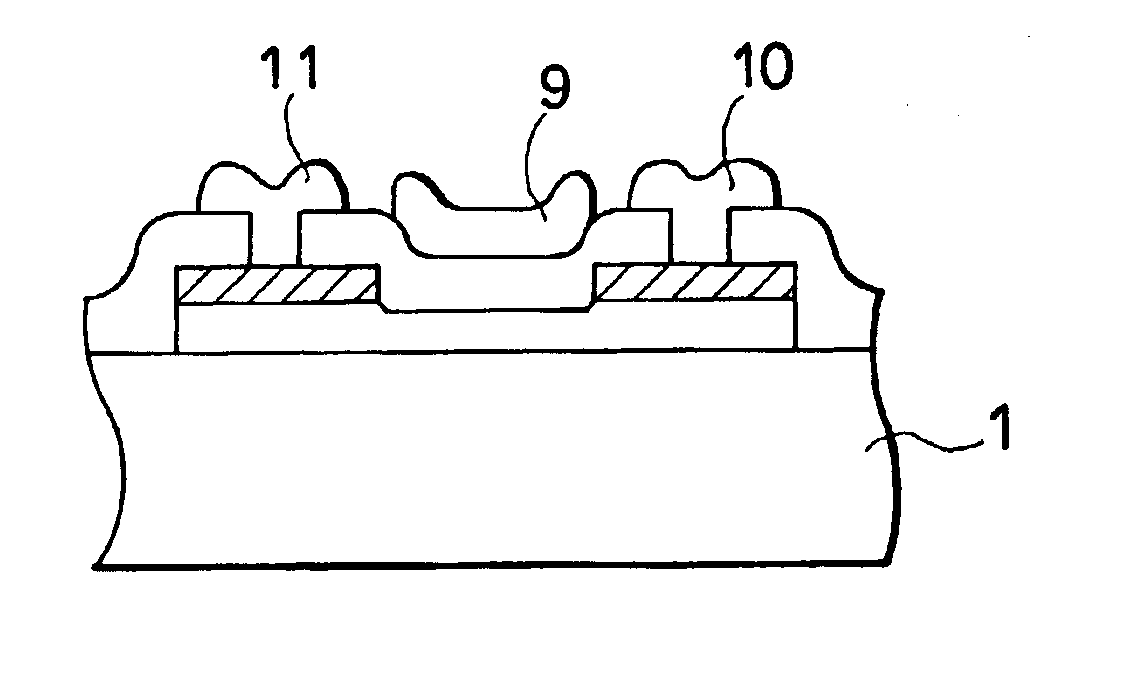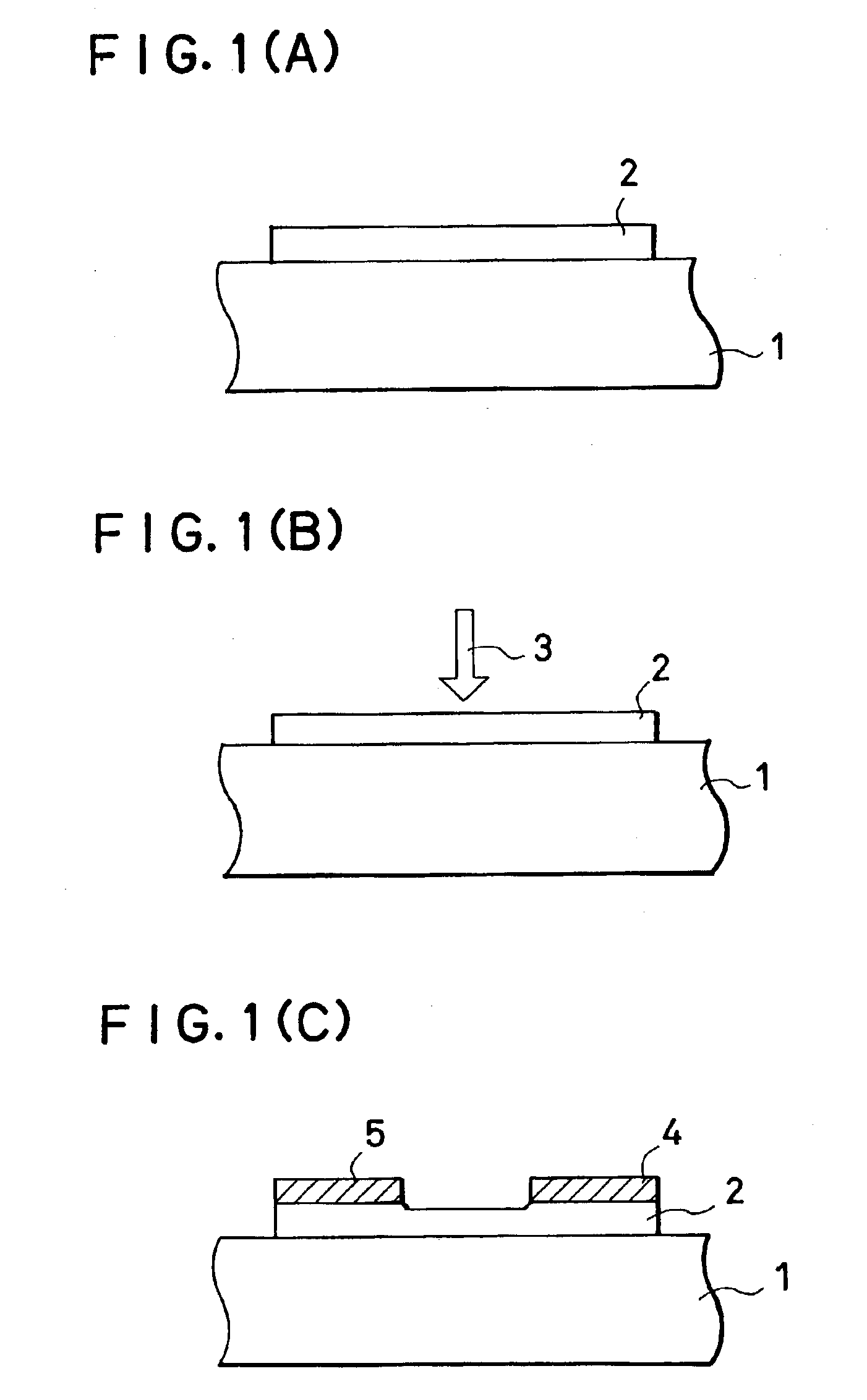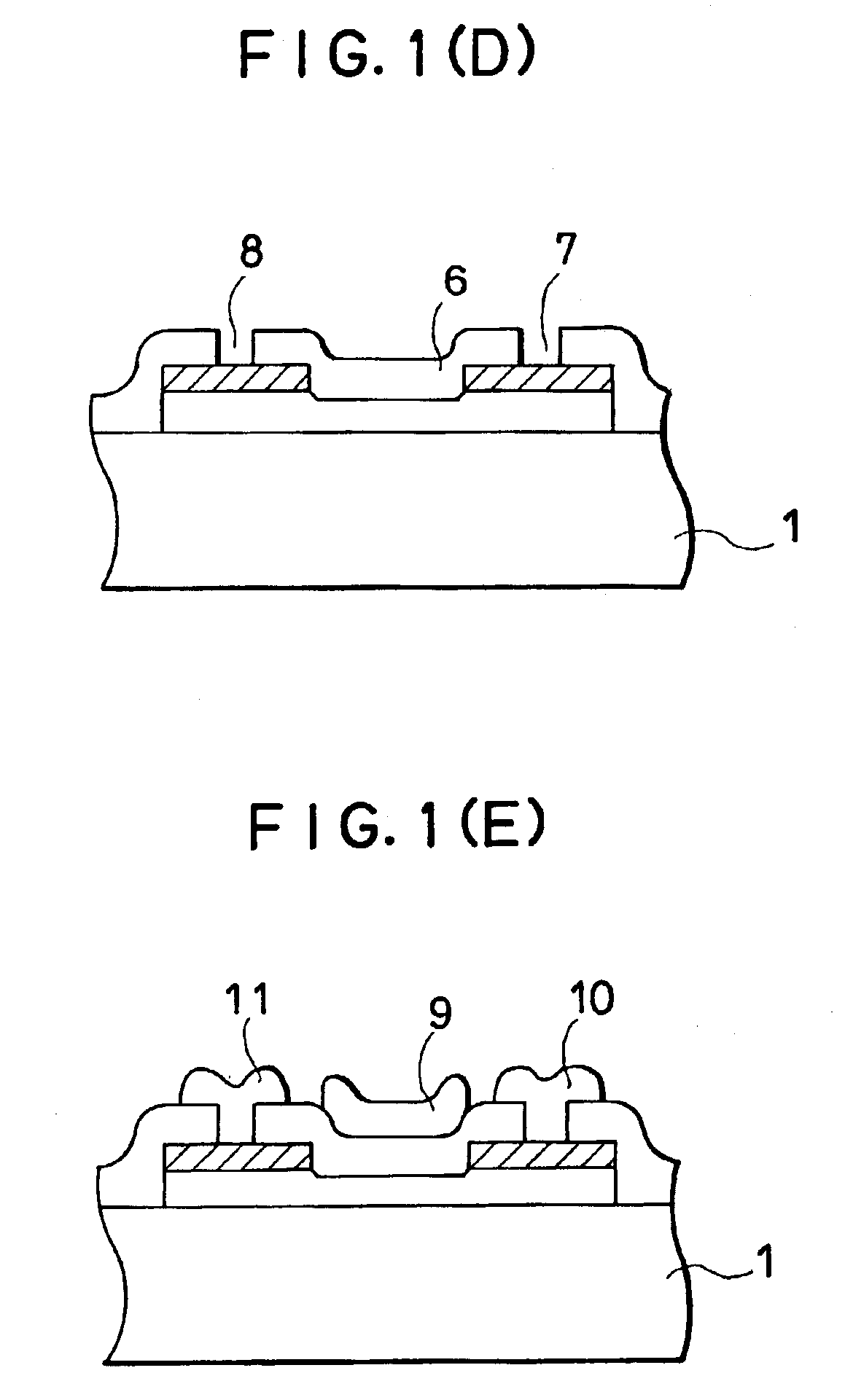Method of forming an oxide film
a technology of oxide film and gate insulating film, which is applied in the direction of vacuum evaporation coating, solid-state devices, coatings, etc., can solve the problems of interfacial level formation, fixed electric charge generation in gate insulating film, and give damage thereto, so as to achieve high reliability, high performance, and high performance.
- Summary
- Abstract
- Description
- Claims
- Application Information
AI Technical Summary
Benefits of technology
Problems solved by technology
Method used
Image
Examples
embodiment no.1
(Embodiment No. 1)
[0050]Referring to FIG. 6(A), a planar type magnetron RF sputtering apparatus suitable for use in manufacturing oxide films or electronic devices in accordance with the present invention is illustrated. The apparatus comprises a vacuum chamber 31, an evacuation system 32 consisting of a turbo molecular pump 32b and a rotary pump 32d respectively provided with valves 32a and 32c, a metallic holder 33 fixed in the lower side of the chamber 31 for supporting a target 34 thereon, formed with an inner conduit 33a through which a coolant can flow to cool the target 34 and provided with a number of permanent magnets 33b, an energy supply 35 consisting of an RF (e.g. 13.56 MHz) source 35a provided with a matching box 35b for supplying RF energy to the holder 33, a substrate holder 36 located in the upper position of the chamber 31 for supporting a substrate 1 to be coated, a heater 36a embedded in the substrate holder 36, a shutter 37 intervening the substrate 1 and the ta...
embodiment no.2
(Embodiment No. 2)
[0075]Referring to FIGS. 1(A) to (E), manufacturing steps of a thin film transistor in accordance with this embodiment are illustrated.
[0076]In this embodiment, a soda-lime glass having a blocking layer such as silicon oxide or silicon nitride provided thereon was used as a substrate 1. On the substrate 1, an I-type non-single crystalline semiconductor layer was formed by a known plasma CVD. Followings are conditions of the formation of the above semiconductor layer.
[0077]
Substrate Temperature350°C.Pressure during Reaction0.06TorrRF Power (13.56 MHz)100WGas to be UsedSiH4Film Thickness2000Å
[0078]The semiconductor layer was patterned into semiconductor islands with a metal mask.
[0079]The patterning may be carried out by means of a known photolithography technique instead of the metal mask. In FIGS. 1(A) to (E), reference numeral 2 designates one of the semiconductor islands.
[0080]Then, as shown in FIG. 1(B), the non-single crystalline semiconductor island 2 was crys...
PUM
| Property | Measurement | Unit |
|---|---|---|
| temperature | aaaaa | aaaaa |
| temperature | aaaaa | aaaaa |
| temperature | aaaaa | aaaaa |
Abstract
Description
Claims
Application Information
 Login to View More
Login to View More - R&D
- Intellectual Property
- Life Sciences
- Materials
- Tech Scout
- Unparalleled Data Quality
- Higher Quality Content
- 60% Fewer Hallucinations
Browse by: Latest US Patents, China's latest patents, Technical Efficacy Thesaurus, Application Domain, Technology Topic, Popular Technical Reports.
© 2025 PatSnap. All rights reserved.Legal|Privacy policy|Modern Slavery Act Transparency Statement|Sitemap|About US| Contact US: help@patsnap.com



